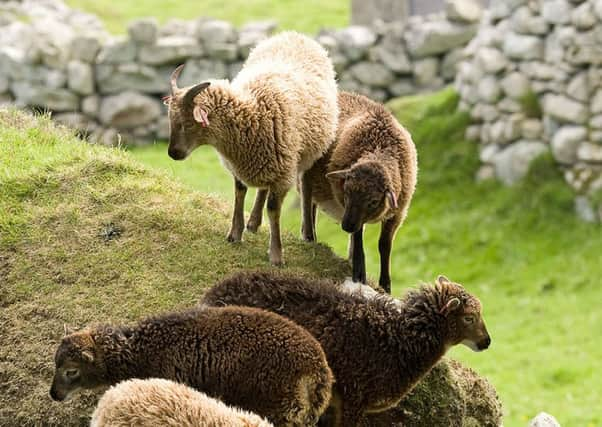St Kilda sheep prove sun helps to aid fertility


In the first project of its kind, Edinburgh University researchers measured concentrations of a marker linked to vitamin D in the blood of a flock of Soay sheep on the most remote Hebridean island.
Scientists measured the level of a marker linked to the vitamin in the sheep’s blood as part of a long-term study of evolution of the animals which have roamed St Kilda for thousands of years and which graze on seaweed.
Advertisement
Hide AdAdvertisement
Hide AdThe sheep with higher levels of vitamin D in their blood at the end of the summer went on to have more lambs the following spring, the research published in the Scientific Reports journal revealed.
There is growing evidence into the impact vitamin D can have on regulating the immune system, particularly on auto-immune diseases such as multiple sclerosis.
Some lab studies have linked vitamin D to reproductive health in animals and humans but this is the first evidence of the link which suggests an evolutionary advantage.
Lead author Dr Richard Mellanby said: “Examining the non-skeletal health benefits of vitamin D in humans is challenging because people are exposed to different amounts of sunlight each day.
“Studying the relationship between skin and dietary sources of vitamin D – and long-term health outcomes – is more straightforward in sheep living on a small island.”
Vitamin D is produced in the skin of sheep and other mammals, including people, after exposure to sunlight. It can also be found in some foods, and is essential for healthy bones and teeth.
Dr Mellanby, head of Small Animal Medicine at Edinburgh’s Royal (Dick) School of Veterinary Studies, added: “Low levels [of vitamin D] appear to dampen the immune response and make the body almost attack itself.
“What we have shown for the first time in wild animals is that vitamin D is linked with important life history events, like giving birth.”
The research was welcomed by fertility campaigners.
Advertisement
Hide AdAdvertisement
Hide AdSusan Seenan, chief executive of the Infertility Network UK, said: “What is important to remember when trying to conceive is to try to stay as healthy as possible overall: eating a balanced diet, getting enough exercise and taking care of your emotional health.
“Recent studies suggesting a link between sunshine/vitamin D and improved fertility are interesting; couples may want to consider boosting their sunshine exposure.
“However, anyone thinking about increasing vitamin D via supplements should consult their GP or fertility specialist first.”